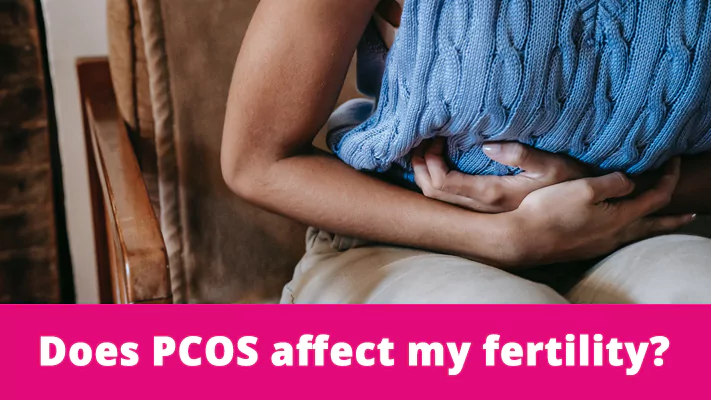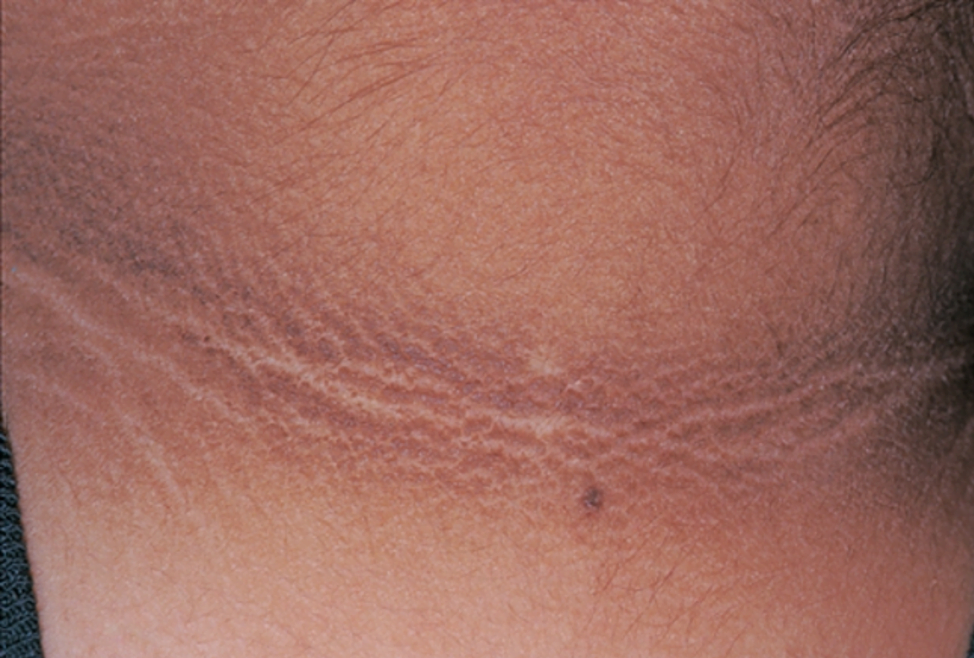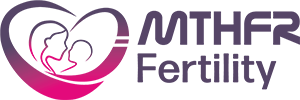
Polycystic Ovarian Syndrome or Polycystic Ovary Syndrome (PCOS) is one of the most prevalent endocrine disorders among women of reproductive age. Globally, the prevalence shows a huge variation as it ranges between 2.2% to 26% among the different countries of the world. But on average, 1 female per 10 females is known to suffer from PCOS. The first case of PCOS was reported by Stein and Levanthal in 1935. It was described as a complex condition along with symptoms like amenorrhea, hirsutism and multiple cysts.
What is PCOS?
As the name suggests, the literal meaning of polycystic is “numerous cysts”. PCOS is a complex condition in which there are clusters of numerous small-sized cysts developed in the ovaries. It is generally accompanied by an imbalance of reproductive hormones. Women with PCOS produce a slightly greater amount of male hormones called androgens and this imbalance can lead to hormonal imbalances that cause conditions like amenorrhea which is complete absence of menstrual periods, hirsutism in which there is excess and abnormal growth of hair on a woman’s face and body, and enlarged ovaries with multiple cysts. (1,2)
This condition is more common in females who have a history of PCOS in their family. Any female whose mother, sister or any other female relative has suffered from PCOS, becomes naturally more prone towards having this condition. It is a common endocrine problem which generally affects the female of reproductive age. Almost 8-13% of females of childbearing age suffer from PCOS. Out of which, 70% of the cases still go undiagnosed. (1,2)
What are the common symptoms of PCOS?
Some common symptoms of PCOS include the following:
- Irregular menstrual periods– females suffering from PCOS may experience
- Amenorrhea: a total absence of the periods
- Oligomenorrhea: infrequent menstrual periods
- Anovulatory periods: bleeding without ovulation
- Heavy period flow
- Hirsutism– It is a condition in which the female body can grow unwanted hair on their face, chin, chest and other body parts. This condition affects almost 70% of the females having PCOS.
- Acne– Females can develop acne on the face, upper back and chest area. They are generally non-responsive to the usual treatment options.
- Weight gain or obesity- females tend to gain weight or may face a struggle in losing weight if suffering from PCOS.
- Hair loss– females can suffer from male pattern baldness or thinning of hair.
- Darkening of skin– there is an increased manifestation of darkening of skin along the neck, under the breasts and groin area. This condition is known as acanthosis nigricans.
- Oily skin- it can result in more oil production by the glands.
- Reduced fertility: females may face difficulty in getting pregnant. (2,3)

Acanthosis Nigricans
What causes PCOS?
The exact cause of PCOS is still unknown but many health care providers and researchers believe that there are certain environmental and genetic factors responsible for PCOS. These factors mainly include:
- High levels of androgens: androgens are male hormones which are responsible for the development of male traits. Women having PCOS produce more androgens and can result in the absence of ovulation and increase in the unwanted hair growth on face and chin along with the acne. (2)
- Insulin resistance: in this condition, the body stops responding to the insulin and results in an increased level of glucose in the blood. This can be a result of unhealthy dietary habits or lack of physical activity. Gradually, it can lead to the development of Type 2 Diabetes Mellitus and acanthosis nigricans. (4)
- Genetic mutation: this condition can be caused by a change or mutation in one or more genes. These mutations can disturb the biochemical pathway and cause ovary dysfunction. Various mutations like FSHR (Follicular Stimulating Hormone Receptor) polymorphism, VDR (Vitamin D Receptor) polymorphism, StAR (Steroidogenic Acute Regulatory) polymorphism, IR(Insulin Receptor) and IRS (IR Substrate) polymorphism, FTO (Fat mass and obesity associated) polymorphism, GnRHR (Gonadotropin Releasing Hormone Receptor) polymorphism are said to be responsible for PCOS. Certain researches showed that some chemical or genetic mutations occurring in the womb also resulted in a higher risk of PCOS.(5)
- Irregular menstrual cycle: it can result in reduced fertility and can cause the development of several fluid-filled sacs in the ovaries. (6)
- Excess weight: Although the relation between the two is still unknown, studies suggest that there is an association between them. Being overweight can result in developing insulin resistance. (7)

What genes might predispose you to PCOS?
PCOS is associated with increased androgen levels.
Various genes which are known to be linked to PCOS are:
Genes involved in Ovarian and Adrenal steroidogenesis-
- CYP 11a- This gene is responsible for encoding an enzyme which is needed in cholesterol to progesterone conversion.
- CYP 21- this gene is required to encode an enzyme which catalyses the conversion of 17-hydroxyprogesterone to 11-deoxycortisol.
- CYP 17- This gene encodes an enzyme (P450c17a) which is required for pregnenolone and progesterone to 17-hydroxypregnenolone nad 17-hydroxyprogesterone.
- CYP 19- this gene is linked with aromatase p450 which is found on chromosome number 15q21.2 and is required for the production of estrogen.
Genes involved in steroid hormone effects:
- Androgen receptor gene- Any mutation in the AR gene can cause PCOS. It is present on “q” arm of chromosome X.
- Sex Hormone-binding globulin gene- this gene is found on chromosome 17p13-p12. It regulates the synthesis of a protein composed of 373amino acids. Females having PCOS have lower levels of SHBG in their body.
Genes involved in Gonadotropin action and regulation:
- Lutein hormone and its receptor gene- if there is any disturbance in the level of LH hormone and their functions, then it can lead to PCOS.
- AMH- It is present on the long arm of chromosome 19 and any fluctuation in their level can cause PCOS.
- Follicular Stimulating Hormone Receptor- it is found on the “p” arm of chromosome 2. This gene helps in encoding a Protein G-coupled receptor which is needed for gonad development. Ay mutation in this gene can lead to hormonal imbalance which further results in PCOS.
- MTHFR- This gene is related to the functioning of several crucial processes in our body. If any mutation occurs in this gene, then the enzyme fails to produce a satisfactory amount of methyl folate in the body. This folate reduction can lead to an inefficient homocysteine pathway resulting in an increased homocysteine level (hyperhomocysteinemia), which is known to increase the risk of PCOS. (8)
How is it associated with fertility?
PCOS is the most prevalent cause of infertility in females of reproductive age. Among the females affected by PCOS, around 75% experience infertility. A significant explanation for infertility is ovulatory dysfunction and almost 100% of females having PCOS suffer from ovulatory disturbances. The hormonal imbalances caused by PCOS can hinder the process of ovulation and also affect egg quality. Without ovulation, the egg won’t be released by the ovary and therefore the probabilities of conception would be diminished.
PCOS can also end in emotional and psychological disturbances and causes anxiety, stress, depression and other mental health disorders. It can lower self-esteem and increase sexual problems which may also play a serious role in decreasing fertility. (9) PCOS can be managed and with the help of supplements and herbs reversed if it is addressed at an early age.
Endocrine Disruptors and PCOS:
Endocrine disruptors are the synthetic hormones which are present in our daily use products like shampoos, toys, beverages etc. They prohibit or block the binding of estrogen and testosterone to their respective hormone receptors and get attached to the receptor themselves. Thus, it results in alteration of the actual functions of the hormones. They are also known as Endocrine Disrupting chemicals (EDC). Some chemicals like Bisphenol A(BPA), phthalates, pesticides and industrial chemicals are the most commonly found EDCs.
Precautions needed to reduce the exposure to EDCs are:
- Replace plastic food containers and water bottles with glass or ceramic products.
- Use BPA free containers and toys.
- Buy Phthalate-free, sulfate-free shampoo and beauty products.
- Avoid consuming prepared food which is available in plastic containers.
- Don’t use plastic bags or plastic wraps to store or heat food.
- Eat freshly prepared food.
- Consume organic products as much as possible. (10)
What are the treatment options?
PCOS symptoms can be often managed with the help of the subsequent treatment options:
- Improving hormonal balance with herbs and supplements. Reducing androgens, clearing toxic estrogens and improving liver function.
- Maintain balance in carb-protein intake- Carbs can improve your insulin sensitivity while proteins can enhance your insulin production.
- Increase your Magnesium and Iron intake– Magnesium-rich food such as cashews, almonds, bananas and spinach should be added to your diet. You can also add iron-rich foods such as eggs, spinach and broccoli after consulting with your doctor.
- Add fibres in your diet- Include brussels sprouts, lentils, lima beans, avocados to your diet for better digestion.
- Supplements- Various supplements like chromium, inositol, turmeric, cinnamon, cod liver oil, zinc, vitamin C, calcium can help with insulin resistance, hormone regulation and associated inflammation.
- Adaptogen Herbs– Herbs like ashwagandha, maca root, licorice root, holy basil, chasteberry are known to balance hormones. They also help in the regulation of some symptoms like irregular periods and pain.
- Weight loss and lifestyle modification: weight loss can improve the cholesterol and insulin levels in your body and helps in decreasing the hair growth and acne.
- Reduce stress and maintain good sleep hygiene– practice yoga to reduce stress levels. Get enough sleep of 8-10 hours by following a regular bedtime routine.
- Acupuncture– It can improve insulin sensitivity and blood flow to the ovaries. It also lowers cortisol levels and can help with weight loss.
- Psychological counselling: counselling can certainly help females in gaining confidence and knowledge about their condition and deal with it in a better way. (11)

Sources
- Services D of H& H. Polycystic ovarian syndrome (PCOS) [Internet]. [cited 2020 Jan 23]. Available from: https://www.betterhealth.vic.gov.au:443/health/conditionsandtreatments/polycystic-ovarian-syndrome-pcos
- Polycystic ovary syndrome [Internet]. womenshealth.gov. 2016 [cited 2020 Jan 23]. Available from: https://www.womenshealth.gov/a-z-topics/polycystic-ovary-syndrome
- What are the symptoms of PCOS? [Internet]. https://www.nichd.nih.gov/. [cited 2020 Jan 23]. Available from: https://www.nichd.nih.gov/health/topics/pcos/conditioninfo/symptoms
- Untitled document [Internet]. Google Docs. [cited 2020 Jan 23]. Available from: https://docs.google.com/document/d/1PzAIA0vH3NPAHXetgKXhwxsBH2vON0nEAeXxi3nqnsM/edit?usp=drive_web&ouid=113173396149030690965&usp=embed_facebook
- What causes PCOS? [Internet]. https://www.nichd.nih.gov/. [cited 2020 Jan 23]. Available from: https://www.nichd.nih.gov/health/topics/pcos/conditioninfo/causes
- Polycystic Ovary Syndrome (PCOS) – ACOG [Internet]. [cited 2020 Jan 23]. Available from: https://www.acog.org/Patients/FAQs/Polycystic-Ovary-Syndrome-PCOS?IsMobileSet=false
- CDC. PCOS (Polycystic Ovary Syndrome) and Diabetes [Internet]. Centres for Disease Control and Prevention. 2019 [cited 2020 Jan 23]. Available from: https://www.cdc.gov/diabetes/basics/pcos.html
- MTHFR and Polycystic Ovarian Syndrome | MTHFR Support Australia [Internet]. MTHFRSupport Australia. 2016 [cited 2020 Feb 6]. Available from: https://mthfrsupport.com.au/2016/12/mthfr-and-polycystic-ovarian-syndrome-pcos
- 9. Brady C, Mousa SS, Mousa SA. Polycystic ovary syndrome and its impact on women’s quality of life: More than just an endocrine disorder. Drug Healthc Patient Saf. 2009 Feb 3;1:9–15.
- PCOS and Endocrine Disrupting Chemicals: Reduce Your Exposure [Internet]. Verywell Health. [cited 2020 Feb 6]. Available from: https://www.verywellhealth.com/pcos-and-endocrine-disrupting-chemicals-4067076
- Natural Treatment PCOS: 30 Ways to Help Hormones, Insulin, and More [Internet]. Healthline. [cited 2020 Feb 6]. Available from: https://www.healthline.com/health/womens-health/natural-treatment-pcos

